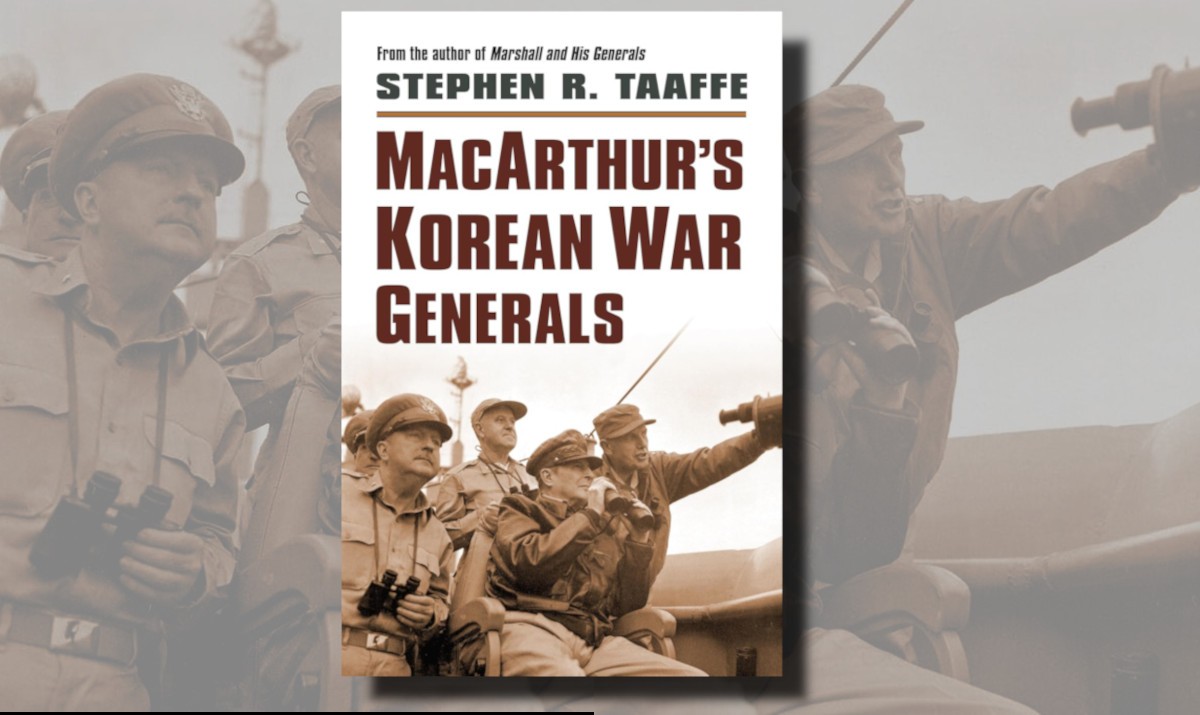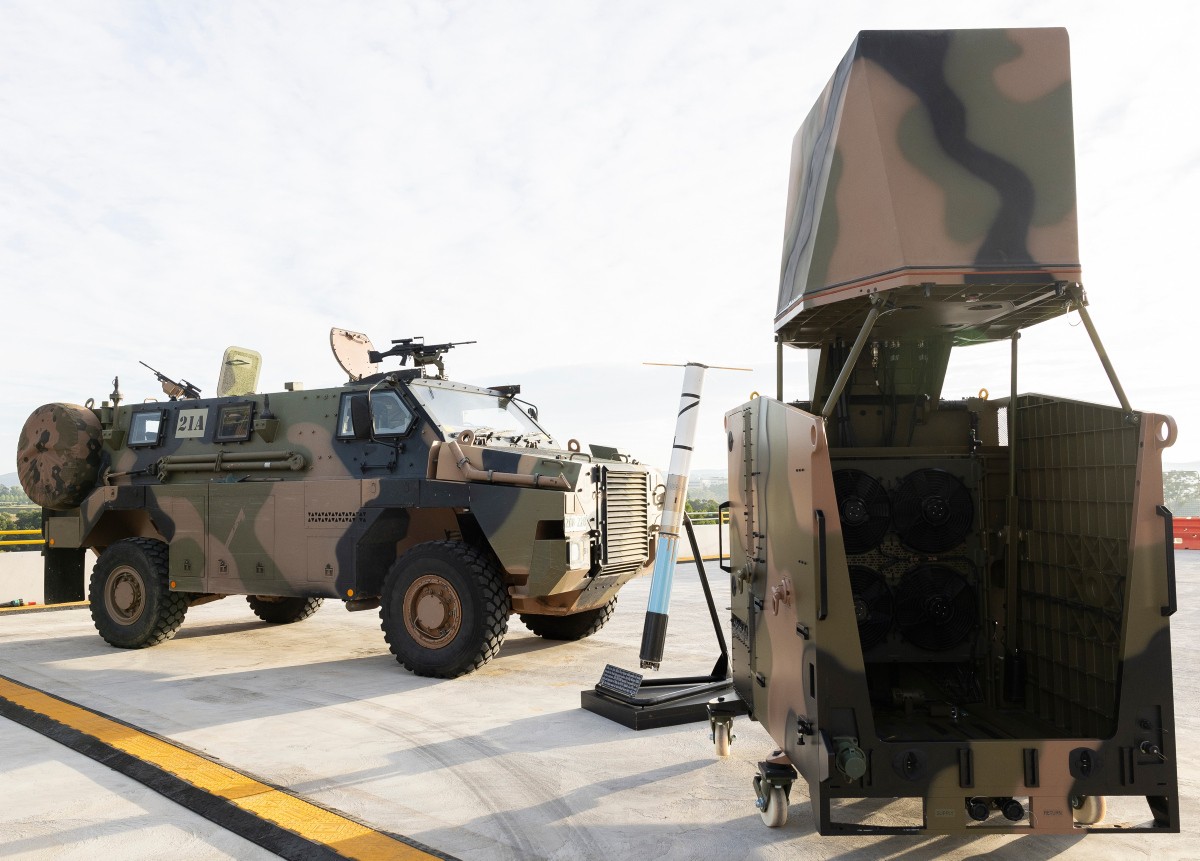Review Essay - Battling the Inevitable: Strategic Trends in Myth and Reality
Abstract
Canadian author Gwynne Dyer was recently in Australia to promote his latest book The Mess They Made: The Middle East After Iraq, which is available from Scribe Publishing. In an interview with the Australian Army Journal he discussed the issues raised in his new book, as well as the strategic concerns facing Australia today.
Innumerable books have been written, pundits have held forth on what should and should not be done, and around the globe the television news each night brings the story of a fractured Middle East into homes everywhere. Throughout the stories, the drama, the wars and the intrigue, a vital question has been forgotten—why should we care about that part of the world? Brave is the author who takes on the task of analysing the situation in such a turbulent region and attempts to explain why things are the way they are. Braver still is the author who then tells readers that, despite claims there is a need to bring democracy to the Middle East, the fact of the matter is that the best thing that could happen to the region would be for the West to stop intervening in their affairs. One such author is Gwynne Dyer.
Dyer is best known as the creator of the monumental TV series ‘War’. The accompanying book, which to some is as close to the definitive title on the subject as is possible, had a new, updated version released in 2005. Since then, Dyer has moved beyond military history, and in the recent past has released a range of works on topics relating to global strategy and geopolitics. His latest Australian release, The Mess They Made: the Middle East after Iraq, is the final book in a trilogy about the situation in Iraq—the first two were Ignorant Armies and Future Tense. In The Mess They Made, Dyer argues that the Middle East must change in the aftermath of the Iraq War, but that the rest of the world should not be overly concerned—’... the entire region is of little economic or strategic importance to the rest of the world’.1
Through logical analysis and a step-by-step walk through of the situation in the Middle East, Dyer explains that the rationale for invading Iraq has its basis in events long before 11 September 2001, and that the invasion was not about Weapons of Mass Destruction or al-Qaeda. In a struggle to understand how a country like the United States could make such a tremendous policy mistake, commentators and academics alike have made claims about the real basis for invading Iraq, such as securing oil2 or Bush Jnr attempting to punish Saddam for attempting to assassinate Bush Snr.3 In his books about the invasion of Iraq, Dyer looks at the ideological and policy mistakes that led to the invasion, and comes to a different conclusion, one based largely on a condemnation of US thinking that should have been left behind with the end of the Cold War. He also views these actions as rooted in hubris. Much of the blame is placed on a group of senior US Republicans who came together to form a group known as the Project for the New American Century, who were demanding an invasion of Iraq as far back as 1998, while Bill Clinton was still in power. Many members of this group went on to have leading positions in the Administration of George W Bush, and were therefore primed to push for invasion again in the aftermath of 11 September 2001. Dyer argues that the invasion of Iraq was about waging a war to safeguard both the US strategic position and its prestige.4 He believes that the threat of Islamist terror is a minor one that the United States is forcing into a paradigm that conforms to a need to militarise any conflict they are involved in. As in the case of the Vietnam War, when it comes to the War on Terror ‘the paradigm overwhelmed the reality’.5 Dyer devotes a chapter, titled ‘The Terrorist Bandwagon’, to pulling apart how the realities of the terrorist threat are not the same as the threat used to justify the claims of many political and military leaders.
Much of The Mess They Made analyses the situation in the Middle East, recounting and analysing the history of the region to explain the current state of affairs. It also moves beyond the present situation, attempting to predict what the world will look like once the United States leaves Iraq, whether by its own choice or through necessity. Dyer argues that the Western obsession with the Middle East, and its subsequent over-importance in political and strategic thinking, may soon be coming to an end. Thus, if the Middle East is not really as important to geopolitics as we have been led to believe, what are the issues that Dyer thinks are of strategic importance to the rest of the world, and Australia specifically?
Dyer contends in his new book that the latest incursion into the Middle East was not about oil, and that we place too much importance on the Middle East precisely because we are concerned about a scarcity that will not be affected by a lack of democracy. He makes the point that no matter what type of regimes are in power in oil-producing countries—democracies, autocratic religious leaders, or something in between—they are still going to sell oil to the outside world because that is what their economies need to survive.6 When asked if the predicted move away from fossil fuels and towards green power will make the Middle East even less important in geopolitical terms, Dyer agrees that this is the case. Current trends mean that fossil fuels (including coal in Australia) will be less important in the global economy in ten to twenty years’ time, according to Dyer. This has impacts beyond economics, and oil-dependent states such as Saudi Arabia are already focussing on strategies for dealing with what this will mean to their international position and strategic needs. Many countries, including the oil producers, believe that with the growing calls for green technology, demand may actually fall more steeply than supply declines after the arrival of ‘peak oil’.7 While OPEC may be engaging in sabre-rattling over the issue,8 Dyer is not alone in thinking the change is inevitable.
It is not only the oil-producing countries that are factoring environmental change into their strategic planning. Dyer contends that the geopolitics of climate change are here and that many countries are taking it seriously. In the United States, politicians from both sides of politics are saying that a National Intelligence Estimate
is necessary to effectively compare and contrast the information gathered by different intelligence agencies and compile a comprehensive report on the possible geopolitical consequences of climate change ... as well as funding additional research by the Department of Defense to examine the impact of climate change on military operations.9
A panel of eleven retired admirals and generals agreed, releasing a study this year stating that climate change was a serious security threat for the United States, with retired Marine Corps General Anthony Zinni, former commander of US forces in the Middle East, saying:
We will pay to reduce greenhouse gas emissions today, and we’ll have to take an economic hit of some kind. Or, we will pay the price later in military terms. And that will involve human lives. There will be a human toll.10
The United States’ allies are also taking this issue seriously. The UK military is already working on scenario planning based in the 2050-2060 timeframe—considering how they would deal with a climate change catastrophe—and this focus has been going on for over eighteen months.11 Here in Australia, the new Australian Defence Force (ADF) publication Joint Operations for the 21st Century12 mentions that one of the new challenges to the ADF is climate change. Whether this is a concern over an increase in catastrophic natural events, unrest due to such things as displaced persons (due to loss of land with rising sea-levels) or a lack of water is yet to be detailed.
The localised effects of climate change are but one aspect of what Dyer calls Australia’s ‘interesting neighbourhood’. Previously, Dyer has written what could be perceived as a dismissive take on Australian military policy, both in his books and in his columns:
Australian defence policy consists primarily of sending Australian troops to every American war, in the hope that if one day Australia needs to have the favour returned, Americans will feel grateful enough to come and help. If the United States invaded Mars, Australia would send a battalion along.13
When asked directly about Australia, he is a much more complimentary. Dyer acknowledges that Australia is correct to think of itself as a ‘smaller middle power’ and that soon the ADF will be a bigger force, by numbers, than the Canadian Forces. He also concedes that we have to take our military strategy seriously because we have a much more ‘interesting’ neighbourhood than Canada, or even the United Kingdom. This means our need to work with the United States (and to be seen to be supporting the United States) is different—our area is a lot less safe than the ‘neighbourhood’ of Canada or the United Kingdom, and yet we do not have the ability to marshal a large, self-dependent force. He acknowledges that Australia’s alliance with the United States is a sensible one, and will continue to be so with the current and future geopolitical trends.
So what are those future trends? Just as Dyer captures the current concerns with books such as The Mess They Made, he is continuing to analyse what will be the issues facing militaries and strategic planners in the years to come. His next book, due out in 2008, is about the geopolitical implications of climate change, another issue that is sure to require more analysis for Australia’s defence thinkers. While Dyer’s examination of the issues facing military forces today may not always be complimentary about his subjects, his thoughtful and provocative analysis results in books that provide a view of things anyone interested in today’s strategic and geopolitical environment should take the time to read.
Endnotes
1 Gwynne Dyer, The Mess They Made: The Middle East After Iraq, Scribe, Carlton North 2007, p. 5.
2 For example, Labour politician and former UK environment minister Michael Meacher, when asked by Aljazeera whether the war in Iraq was about oil said: ‘The connection is 100%. It is absolutely overwhelming ... It was principally, totally and comprehensively to do with oil.’ References to the interview can be found at <http://english.aljazeera.net/English/archive/archive?ArchiveId=12244>
3 For example, Toby Hardnen, ‘Unfinished business for the Bush family - and, yes, it’s personal’ Telegraph, 17 March 2003, accessed from <http://www.telegraph.co.uk/news/main.jhtml?xml=/news/2003/03/18/wioil11…;
4 Dyer, The Mess They Made: The Middle East After Iraq, p. 55.
5 Ibid, p. 133.
6 Ibid, p. 3.
7 Gwynne Dyer in an interview with the author, Sydney, 31 May 2007.
8 OPEC has recently threatened to drive up the price of oil and cut back on investment in developing new oil sources, as a reaction to the growing development of biofuels.
9 Eli Clifton, ‘Grasping the Geopolitics of Warming’, Interpress Service News Agency, 9 April 2007, accessed from < http://ipsnews.net/news.asp?idnews=37280>.
10 — ‘Military Panel: Climate Change Threatens U.S. National Security’ Environment News Service, 16 April 2007, <http://www.ens-newswire.com/ens/apr2007/2007-04-16-05.asp>.
11 Gwynne Dyer interview with the author.
12 Commonwealth of Australia, Joint Operations for the 21st Century, Department of Defence, Canberra, 2007.
13 Gwynne Dyer, Future Tense: The Coming World Order, Scribe, Carlton North, 2006, p. 186.


